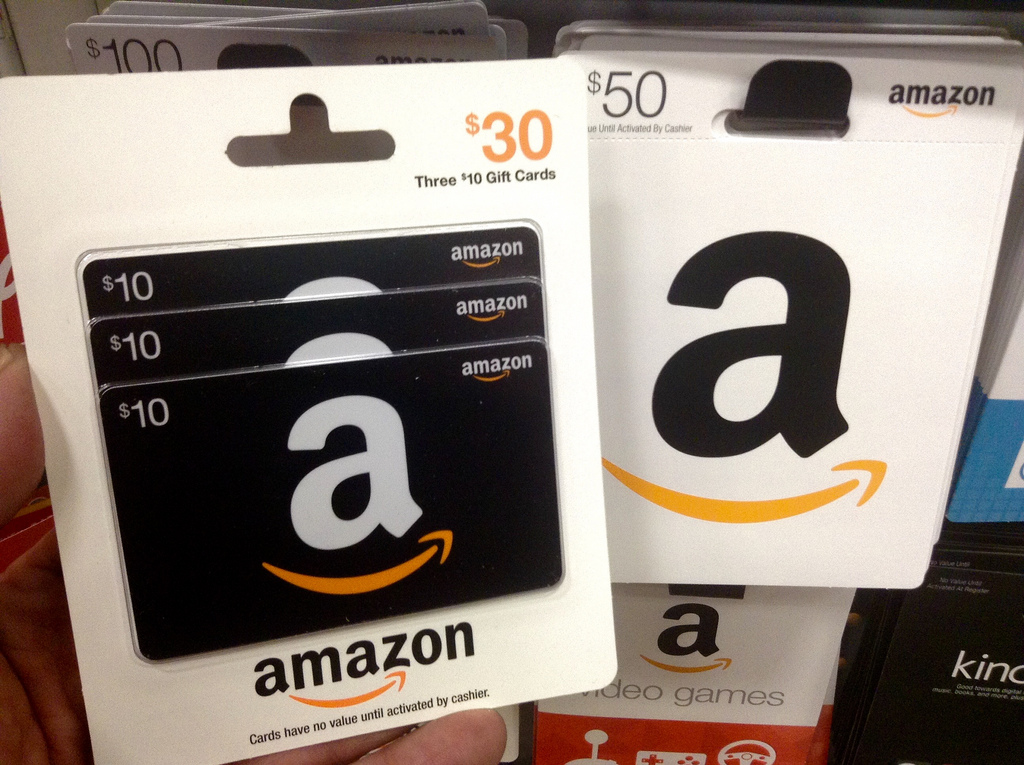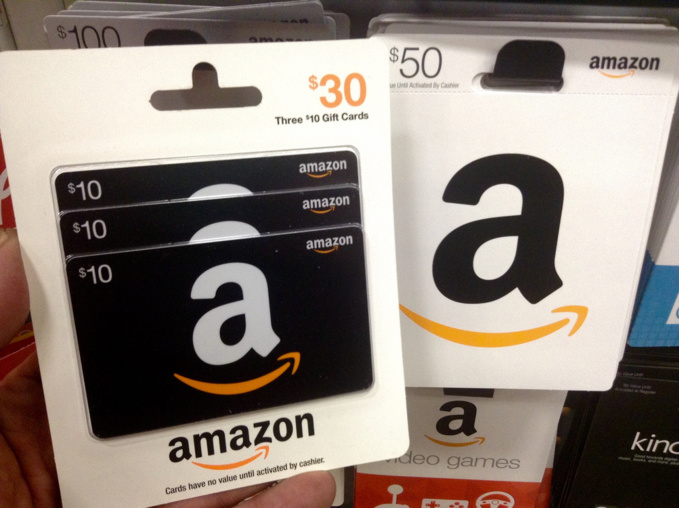Some believe that it is worth investing in the firm of Jeff Bezos, others are struck by the sales volume of the Chinese retailer. It may seem that these companies are direct competitors, and they do not have a place in one investment portfolio. But is it? Let's try to understand.
Since the beginning of this year, shares of the American online retail giant Amazon have grown by 33% and overcome the psychologically important mark of $ 1000. The reason for this was growth of sales and profits of the corporation. According to the company's quarterly report, its net profit for the first quarter was $ 724 million, an increase of 41% compared to the same period last year, while net sales grew by 23%.
Such success of Amazon is obliged to a constant increase in the brand’s strength, as well as the company’s desire to be closer to its client. The brand recently opened a branded network of traditional bookstores and announced a system of deliveries by drones, the economic efficiency of which now looks very doubtful. Amazon wants to be perceived as an advanced company that does everything for convenience of customers, and for which the future is not only about trading via the Internet, but retailing in general.
It seems that investors also believe in the bright prospects of this corporation: the forecast value of the P/E ratio for Amazon for this year is 146, whereas S&P 500 index assesses it in the region of 26. Of course, there are grounds for this - according to Statista, sales in online retail in the US are growing by about 15% per year, the share of e-commerce in total retail sales so far is only 8.5%, while Amazon is showing itself much better than others. In addition, the company is actively fighting for customer loyalty, so it has every chance to maintain its market share. The related figure of Amazon’s closest competitor in terms of online sales in the US, Wal-Mart, is about six times less, and the prospects for Amazon's dominance look cloudless.
However, another giant of online retail, Alibaba, expresses a desire to enter the American market at the beginning of this year.
In China, the online retail market is growing at a rate of 26% per year, and now accounts for 15% of the country's retail trade. A significant part of the profit from this growth is given to Alibaba: according to the company's quarterly report, its revenue for the first quarter increased by 60% compared to the same period last year.
The company has already outgrown the Chinese market. At the beginning of this year Alibaba launched new trade channels in Singapore, Malaysia, Hong Kong and Taiwan. On each of these markets, the company introduced its own infrastructure, including financial. At about the same time, Ant Financial gave 1.2 billion dollars for American payment system MoneyGram and now waits for the regulator's response. If this deal takes place, it will give the holding a springboard for expansion in the US. The beginning of this half-year was also marked by loud promise of Jack Ma, the founder and director of Alibaba. At a meeting with Donald Trump earlier this year, he said that the holding could create more than 1 million jobs in the US for five years.
Thus, Alibaba positions itself in the US market not as an importer, who floods the market with cheap Chinese goods, but as an exporter that creates jobs and helps to correct a scarce trade balance. This is especially important for Trump and the current presidential administration, so the holding will most likely be given a "green light" in his projects.
Many see Amazon and Alibaba as direct competitors for American and Asian markets. Indeed, the companies are somewhat similar in that they both provide a platform for meeting buyers and sellers. At that, the latter mainly come from China.
Although Alibaba now has a higher market capitalization than Amazon (388 billion dollars against 492 billion), judging by the growth rates of Asian markets, the company from Guangzhou will soon outgrow its American competitors. In March of this year, the earnings per share of the Chinese corporation was $ 0.6 versus $ 1.5 from Amazon, but now Alibaba shares are six times less than the shares of Amazon. This makes purchase of Alibaba securities a more interesting investment in Internet retail. On the other hand, Jeff Bezos’ company is known for its ability to surprisingly jump in profits. Therefore, an investor who wants to extract the maximum revenue from the growth of online retailers on both sides of the Pacific should think about adding both companies to their portfolio.
source: cnbc.com, wsj.com
Since the beginning of this year, shares of the American online retail giant Amazon have grown by 33% and overcome the psychologically important mark of $ 1000. The reason for this was growth of sales and profits of the corporation. According to the company's quarterly report, its net profit for the first quarter was $ 724 million, an increase of 41% compared to the same period last year, while net sales grew by 23%.
Such success of Amazon is obliged to a constant increase in the brand’s strength, as well as the company’s desire to be closer to its client. The brand recently opened a branded network of traditional bookstores and announced a system of deliveries by drones, the economic efficiency of which now looks very doubtful. Amazon wants to be perceived as an advanced company that does everything for convenience of customers, and for which the future is not only about trading via the Internet, but retailing in general.
It seems that investors also believe in the bright prospects of this corporation: the forecast value of the P/E ratio for Amazon for this year is 146, whereas S&P 500 index assesses it in the region of 26. Of course, there are grounds for this - according to Statista, sales in online retail in the US are growing by about 15% per year, the share of e-commerce in total retail sales so far is only 8.5%, while Amazon is showing itself much better than others. In addition, the company is actively fighting for customer loyalty, so it has every chance to maintain its market share. The related figure of Amazon’s closest competitor in terms of online sales in the US, Wal-Mart, is about six times less, and the prospects for Amazon's dominance look cloudless.
However, another giant of online retail, Alibaba, expresses a desire to enter the American market at the beginning of this year.
In China, the online retail market is growing at a rate of 26% per year, and now accounts for 15% of the country's retail trade. A significant part of the profit from this growth is given to Alibaba: according to the company's quarterly report, its revenue for the first quarter increased by 60% compared to the same period last year.
The company has already outgrown the Chinese market. At the beginning of this year Alibaba launched new trade channels in Singapore, Malaysia, Hong Kong and Taiwan. On each of these markets, the company introduced its own infrastructure, including financial. At about the same time, Ant Financial gave 1.2 billion dollars for American payment system MoneyGram and now waits for the regulator's response. If this deal takes place, it will give the holding a springboard for expansion in the US. The beginning of this half-year was also marked by loud promise of Jack Ma, the founder and director of Alibaba. At a meeting with Donald Trump earlier this year, he said that the holding could create more than 1 million jobs in the US for five years.
Thus, Alibaba positions itself in the US market not as an importer, who floods the market with cheap Chinese goods, but as an exporter that creates jobs and helps to correct a scarce trade balance. This is especially important for Trump and the current presidential administration, so the holding will most likely be given a "green light" in his projects.
Many see Amazon and Alibaba as direct competitors for American and Asian markets. Indeed, the companies are somewhat similar in that they both provide a platform for meeting buyers and sellers. At that, the latter mainly come from China.
Although Alibaba now has a higher market capitalization than Amazon (388 billion dollars against 492 billion), judging by the growth rates of Asian markets, the company from Guangzhou will soon outgrow its American competitors. In March of this year, the earnings per share of the Chinese corporation was $ 0.6 versus $ 1.5 from Amazon, but now Alibaba shares are six times less than the shares of Amazon. This makes purchase of Alibaba securities a more interesting investment in Internet retail. On the other hand, Jeff Bezos’ company is known for its ability to surprisingly jump in profits. Therefore, an investor who wants to extract the maximum revenue from the growth of online retailers on both sides of the Pacific should think about adding both companies to their portfolio.
source: cnbc.com, wsj.com



















